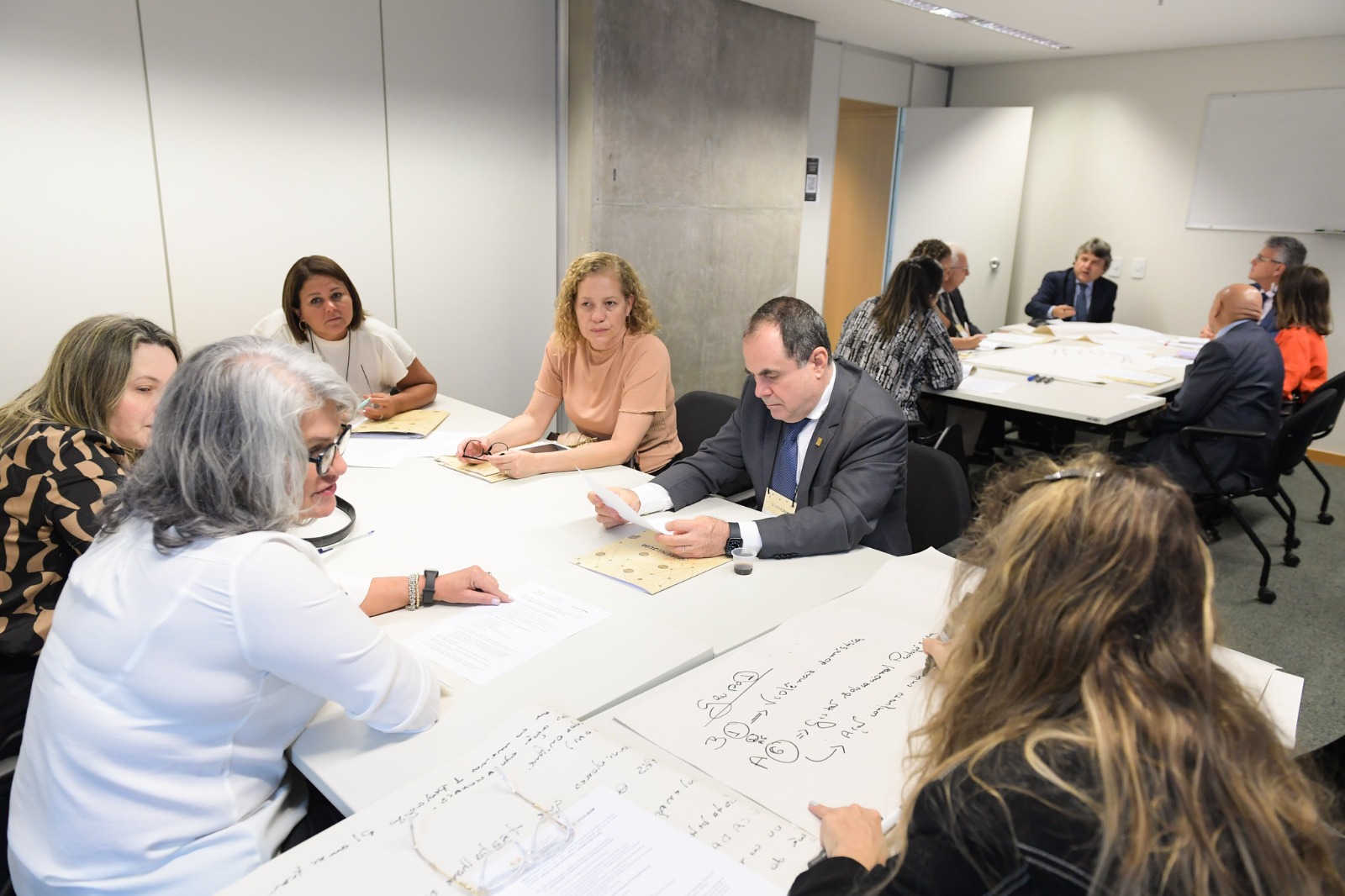
The National Network of Judicial and Magistracy Schools (Renejum) was launched on the morning of Thursday (2nd), for about 90 people, during the opening of the meeting of judicial and magistracy schools, at the headquarters of the National School for Training and Improvement of Magistrates (Enfam). The initiative, which main purpose is to enable mutual learning and innovation, was conceived from the need to further expand the alignment and integration between the norms of the National Council of Justice and the training and improvement of Brazilian federal and state magistrates.
Minister Mauro Campbell Marques, General Director of Enfam; Minister Og Fernandes, Vice President of the Superior Court of Justice and of the Federal Justice Council; Justice Marco Villas Boas, President of the Permanent College of Directors of State Schools of Magistracy (Copedem) and Director of the Superior School of the Judges of the State of Tocantins; and Judge Jorsenildo Dourado do Nascimento, General Secretary of Enfam, were present at the opening of the meeting and at the launching of the Network.
For the general director of the School, Minister Mauro Campbell Marques, the mark of the launch is important for the possibility of intertwining the structural diversities, the geographical particularities, and the socio cultural universes that mark the national identity. He also highlighted the importance of networking as a constant and growing space for exchange. "Renejum is the mechanism capable of building intelligent solutions that meet the challenges faced by all those who experience the formation, training, and improvement of the national judiciary," he emphasized.
Also on Thursday morning (March 2nd), after the opening ceremony and while the General Director of Enfam was meeting with the directors of the judicial and magistracy schools, the panel on Diagnosis: overview of State and Federal schools - potentialities and demands for actions of Enfam took place. On the occasion, Fabiano Tesolin, executive secretary of the School, presented more details about the Network. "The goal here is collaboration. The essence of Renejum is to work together. To improve the quality of our work, organize our financial resources and the systematics of judicial education in Brazil."
Júlia Maurmann Ximenes, coordinator of Planning and Evaluation of Pedagogical Actions, and Caio Henrique Faustino, International and Institutional Relations advisor, also participated in the enlightening moment about Renejum, sharing information about the visual identity (logo and website proposal) and the institutional video. In addition, they presented the structure and operation of this mark, which symbolizes the realization of the educational work in network, from the institutionalization of collaborative actions of governance and leadership. During the afternoon, the participants of the Meeting were directed to working groups (WGs), which worked as moments of socialization among the schools for the survey of demands, potentialities, and challenges of the Network. The proposals and considerations of the WGs were presented on Friday morning (March 3rd), the second day of the Meeting, which also included a lecture by Doctor Prof. José Vieira de Souza about the role of management teams, professors and other school professionals in the implementation of the institutional pedagogical project. Later, in the afternoon, Júlia Maurmann Ximenes returned to the program to share the next steps of Renejum.
About Renejum
Among the attributions of Renejum are the promotion of studies, researches, projects, and joint works aimed at the implementation of normative acts and public policies in the Judiciary; the sharing of good practices, knowledge, and information regarding judicial education and innovation in the justice system; the socialization of innovative and sustainable initiatives regarding educational management, curriculum, and assessment in the scope of the education of the members of the Judiciary; as well as the development of collaborative strategies and actions aimed at the excellence of the judicial protection provided, converging the improvement actions promoted among its members.
In its structure, the National Network will have a Deliberative Council and an Executive Committee. The former, the highest decision-making body of the Network, will be responsible for defining the thematic axes, approving the strategic planning, and analyzing the proposals presented by the executing agency. The Executive Committee, in turn, will prepare the strategic plan of the Network, work plan, and annual agenda, as well as organize regular meetings and semiannual gatherings required for the preparation, updating, and consolidation of reports, projects, and technical studies produced during each year.




